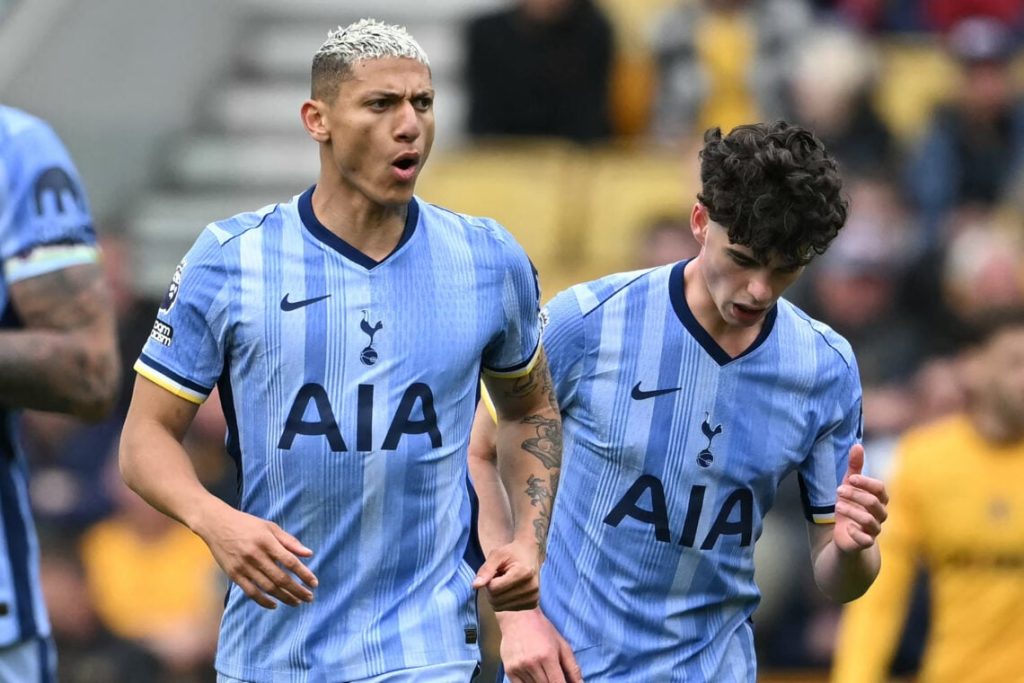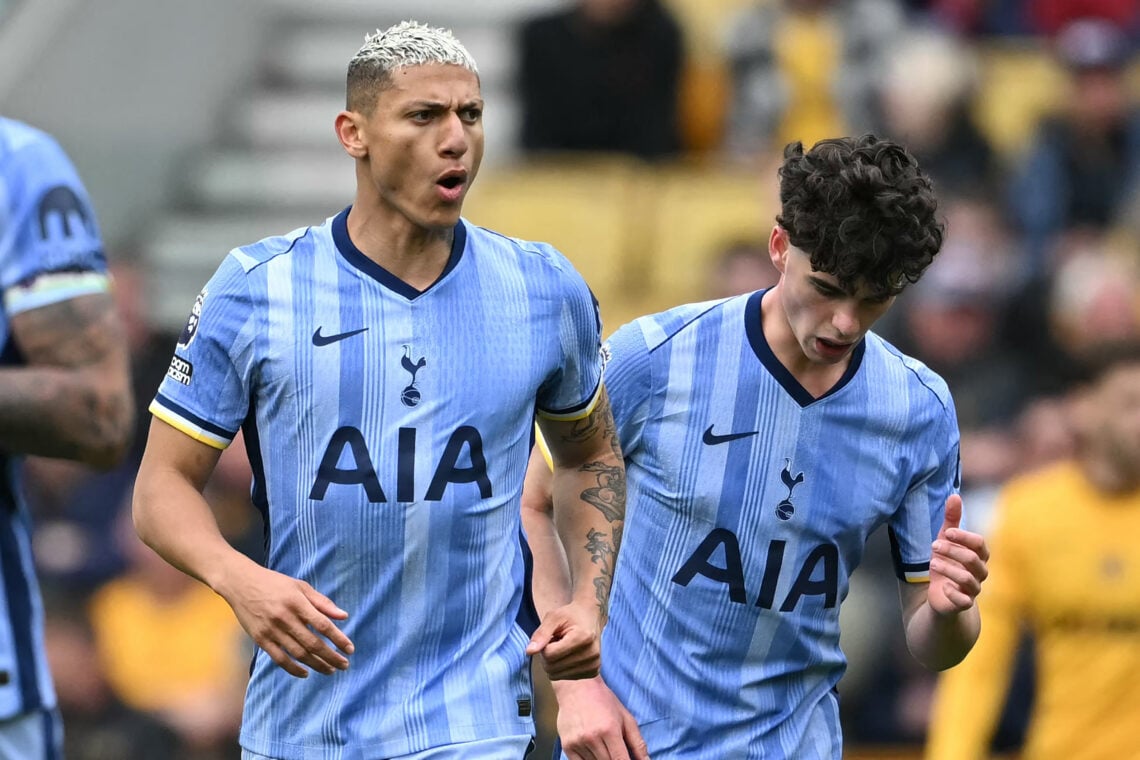Tottenham Hotspur’s 4-2 capitulation at Wolverhampton Wanderers delivered more than just three lost points—it exposed fundamental flaws in Ange Postecoglou’s system at the worst possible moment, just four days before their crucial Europa League quarterfinal against Eintracht Frankfurt.
What was meant to be a controlled rotation exercise turned into a defensive horror show, raising urgent questions about Spurs’ direction. Here’s what the collapse revealed about Tottenham’s current state.
Systemic Breakdown: “Ange-ball” Losing Its Identity
The chaotic performance at Molineux suggested Tottenham have lost their tactical compass. Postecoglou’s signature high-risk approach—once exhilarating in its attacking verve—now appears disjointed and vulnerable.
Wolves repeatedly exploited the space behind Tottenham’s inverted full-backs, with Cristian Romero’s advanced positioning leaving Ben Davies exposed in a makeshift backline. The defensive disorganization was staggering: no compact midfield press, no coordinated defensive line, and no recovery pace to mitigate errors.
Earlier in the season, fans tolerated defensive lapses because the team compensated with relentless attacking output. That trade-off has disappeared. Spurs now look fragile at the back and blunt in attack—a worst-case scenario that can’t solely be blamed on injuries. The concerning truth? Opponents have decoded Postecoglou’s system, and Tottenham lack a viable Plan B.
Rotation Backfires Before European Test
Postecoglou’s decision to rest key players—Micky van de Ven, Pedro Porro, Destiny Udogie, and Rodrigo Bentancur all started on the bench—might have been justified with Frankfurt in mind, but the performance of their replacements was alarming.
The second-string side failed to compete with a Wolves team hovering just above the relegation zone, which speaks volumes about Tottenham’s squad depth.
While rotation was necessary, the manner of the defeat undermines confidence ahead of Thursday’s European clash. A win in Germany could retrospectively justify these lineup choices, but the display at Molineux suggested Spurs’ backups aren’t equipped to execute Postecoglou’s style effectively.
If the manager can’t trust his squad players in a mid-table Premier League fixture, how can he rely on them in a high-stakes European knockout tie?

Mathys Tel’s Mixed Audition
With Heung-min Son and Wilson Odobert absent, Mathys Tel finally received a rare start on the left wing—a position many fans argue suits him far better than the center-forward role he’s often deployed in.
The Bayern Munich loanee’s performance encapsulated both promise and frustration: his work rate was commendable, and he showed flashes of directness that Tottenham’s attack has lacked lately. His deflected goal, while fortunate, at least demonstrated his willingness to attack the box.
However, the broader question looms: has Tel done enough to justify Tottenham triggering his £50 million option? Moments of hustle shouldn’t overshadow the fact that he still lacks end-product consistency.
If Spurs negotiate a lower fee, he could be a worthwhile project—but at the current price, his impact remains questionable.
Vicario’s Crisis of Confidence
Guglielmo Vicario’s nightmare performance should set off alarm bells. The Italian goalkeeper, once a reliable presence, has been progressively shaky in recent months—and his display against Wolves hit a new low. His weak punch led to Wolves’ opener, his poor distribution nearly gifted a second goal, and his flapped clearance resulted in an own goal via Djed Spence.
Modern goalkeeping demands more than shot-stopping; it requires composure in buildup and command of the box—areas where Vicario is increasingly vulnerable. With the summer transfer window approaching, Tottenham must seriously assess whether he can rediscover his early-season form or if they need to explore alternatives.
Archie Gray’s Lesson for Porro
Amid the wreckage, Archie Gray’s brief cameo offered a sliver of insight. The youngster’s overlapping runs on the right provided width that Pedro Porro often neglects in his inverted role.
Gray’s willingness to stretch play created opportunities that Spurs’ usual buildup lacks, suggesting Porro could benefit from varying his approach.
This isn’t to say Porro should abandon his central involvement—his creativity from half-spaces is valuable—but greater tactical flexibility could make Tottenham less predictable. Gray’s example highlights how small adjustments might help unlock stagnant attacking patterns.
A Pivotal Moment for Postecoglou
Thursday’s match in Frankfurt now carries even greater weight. A strong European result could temporarily mask Premier League struggles, but another disjointed performance will intensify scrutiny on Postecoglou’s long-term viability. The Wolves defeat wasn’t just a bad day—it exposed systemic issues that can’t be ignored.
Has the manager’s philosophy been found out? Does the squad lack the personnel to execute his vision? Are his in-game adjustments too reactive?
These questions demand answers, and how Tottenham responds in Germany could define their season—and possibly Postecoglou’s future. One thing is clear: the “Ange-ball” project is at a crossroads, and the next few matches will determine whether it’s salvageable or in need of a major rethink.

